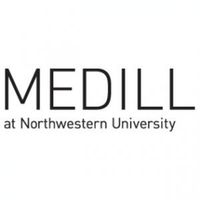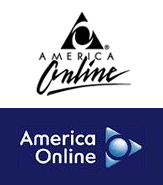Think of this as Volume 15, Number 8 of A-Clue.com, the online newsletter I've written since 1997. Enjoy.
Always be wary of any business where the first word is submission.

Benjamin Franklin used words to build a printing business. Mark Twain made most of his money from “monologues” – he invented stand-up. Charles Dickens gave away American rights to his novel “Martin Chuzzlewit” to protest our theft of his other work. Copyright – the economic power of ideas – has mainly been respected as a corporate right, not the personal right the Founders intended it to be.
When I began my career, back in the late 1970s, some teachers at Northwestern University's Medill School were foolish enough to call what I was doing a profession. Others were wiser. They called it what it is, a trade, and abjured the title “professor” or “doctor” because they believed no journalist had earned it.

So my life, from its start, was always a fantasy. The best advice I ever got, from the late George Heitz, in my first Medill lecture, was “if you want to have a good living find a spouse with a good job.” I practically ran back to our apartment to tell my lovely bride-to-be she was going to be a career girl. (The best break of my life is she both married me and took the advice.)

I have sought a living online since 1985, and have made money in various ways. Newsbytes gave me a monthly stipend. Interactive Age paid me a monthly salary. During the dot-boom I got piece rates for my “columns.” Throughout this time I wrote often about Internet Commerce, wondering how in the world I (or other journalists) could ever make a real living in this medium.
For a while CompuServe provided an answer. The moderators of its forums, like the (then) world-famous Jforum, got a cut of the revenue paid for time spent online within their forums. It was all measurable, and from what I remember some people made good money. But when the Web was spun and AOL went to AYCE (All You Can Eat) pricing, this disappeared, and so did the writers' money.

Over this decade other publishers have found the value of business models. BlogAds helped give some individuals, like Duncan Black of Atrios, a good income. Such models helped give other bloggers, like Glenn Reynolds of Instapundit, a side income. (His real job is teaching malpractice at the University of Tennessee.) Other bloggers also became publishers, most notably Markos Moulitsas (DailyKos) and Arianna Huffington (The Huffington Post).
The difference between blogging and journalism has little to do with professionalism, or any of the other issues smug (non-publisher) journalists tell you it is.
The difference is a business model.

The second side is distribution. Back in the print days the cover price of a paper was meant to only get said paper from the printer to your door, which makes all those arguments about “payment for news” silly, since there is no distribution cost on the Web.
But there are technical costs. You need servers, you need software, you need programmers and techies to run it all. (Even if you're buying it through a cloud service.) You need to pay the people who sell your ads, the managers who keep things running, and yourself (of course).
What's left is the money you spend on content, the writer's portion. In the print days this was 8% of the gross – and we had to split it with the editors. The only reason papers like The New York Times could ever offer decent salaries to writers was that they were scaled businesses – 8% of a billion is $80 million and will keep a lot of highly-trained people thinking they're professionals for a lifetime.
But that was an illusion.
Fortunately, after 16 years covering Internet Commerce, I can finally predict things are about to get better for writers. This is because we know how the business models work. ZDNet has shown us the secret sauce. A bidding war is about to begin.

The way forward, I believe, is for other publishers to do what Dan Farber and David Berlind did years ago at ZDNet. Figure out what they can get for a page view, and offer writers a cut. Journalism on commission.
There are ways you can tweak the model. You can hold some money out for “prizes” – grants based on excellence as defined by the editors (who know the real editorial needs of the readers). You can offer different types of deals to different people. Stars who don't want to be entrepreneurs can get a salary (because the publisher knows he's really ripping them off) while the paid tiers can help people move up through the ranks. If you really need an editor, they're getting a cut off your tier. If you can do it on your own, you get the whole thing. And everything becomes transparent.
We have finally reached the point with this online publishing business where we know what it's about, we know how to make money at it, and we know what we need to do in order to make that money. It's like newspapers after 1892, movies after 1915, radio after 1925, TV after 1952.
What's left is for the talent to start taking its cut, and for quality to pay.











ways to make money
Dana Blankenhorn: The Struggle to Get Paid Online